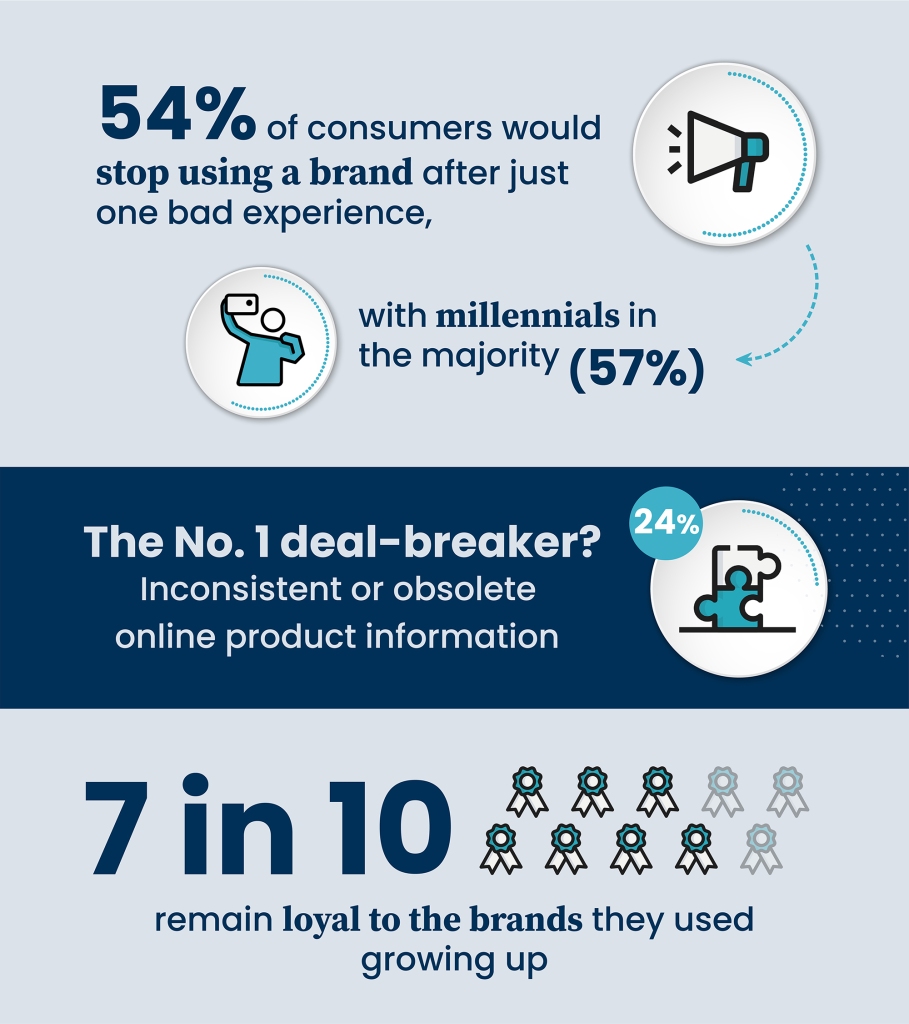7 in 10 Americans remain loyal to their childhood brands
If it ain’t broke don’t fix it.
A recent poll conducted by OnePoll on behalf of Propel Software revealed that seven in ten Americans stick to the brands they know and love, remaining loyal to those that they used growing up.
People’s favorite brands that often carry into adulthood, include brands for kitchen appliances (65%), recreational products such as sporting goods or camping gear (63%), electronics (60%) and office or school supplies (51%).
Some adults are so loyal to their favorite brand’s products and supplies they would go to extraordinary lengths for a lifetime supply.
Of these die-hard brand fans, 40% said they would give up social media for a month, 39% would endure household chores for a year and 36% would literally run a marathon. A third would even shave off all their hair or break up with a romantic partner.

On the contrary, an astonishing 54% of consumers said they would stop using a brand after just one bad experience, with millennials in the majority (57%) upholding their title as the “impatient generation.”
The recent poll of 2,000 adults also found that two-thirds (67%) said they would be willing to switch brands if their initial experience with a new one puts their go-to brand to shame.
In fact, 58% have recently made the switch from a brand they used to love to its competitor with nearly half (47%) saying they were enticed by an enhanced brand experience or taking a similar stance on issues that are meaningful to them.
When a brand doesn’t have a great brand experience such as inconsistent or obsolete online product information, adults (24%) just keep scrolling for one that does.
Most respondents associate an enhanced brand experience with high quality (42%), affordability (39%) and innovation (36%). Choosing from a list of well-known brands, Apple was the most associated with high quality (26%), Amazon with affordability (41%) and Google with innovation (42%).
Of the items people were most willing to switch brands on, smartphones topped the list at 37%, TVs and kitchen appliances were second with 36% each and cars third at 35%.
However, recent changes in brand loyalty were most common for office or school supplies (53%), packaged goods such as soda, snacks, or cereal (52%) and recreational products (52%).
When looking for brands to take a stance on meaningful issues such as workforce diversity or environmental compliance, adults want to know that they are supporting a brand that aligns with their beliefs.

“Our results show an increasing need for more brands to understand the customer experience isn’t limited to the point of purchase,” Ray Hein, CEO of Propel Software told SWNS.
“Two-thirds of consumers now expect brands to engage with them well after the sale, anticipate their needs, and rectify bad experiences quickly. Companies that get this right are on the fast track to gain and retain more customers than their slower competitors.”
“Unsurprisingly, 63% of consumers said the pandemic has greatly altered their expectations when purchasing products. Brands need to become better listeners, reevaluating how they develop their products based on consumers’ needs, from finding innovative ways to increase affordability to offering subscription-based add-ons,” Hein added.
But despite all their best efforts to advertise their diversity, eco-consciousness and influencer endorsements, people listen to their spouses more than anything else when it comes to what brands are good (39%), beating out third-party reviewers (31%), celebrities (30%) and influencers (29%).
Read the full article Here


